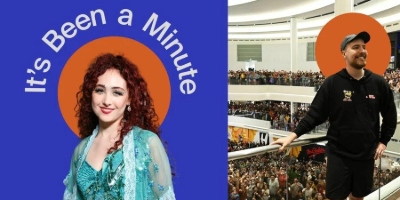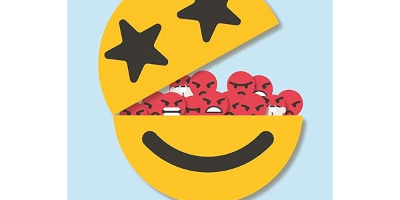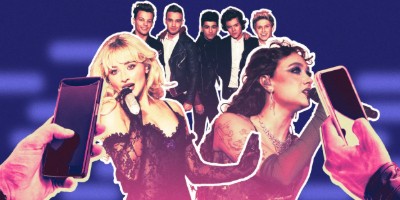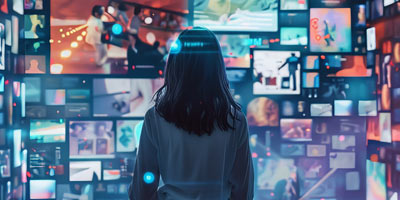
The interdisciplinary Texts and Technology (T&T) doctoral program sustained its tradition of research excellence by delivering new insights — especially in cutting edge areas like generative AI — to various communities through a digital humanities lens.
T&T in the Scholarly Community
Last summer, T&T faculty and students convened an international community of scholars to virtually connect at UCF as hosts of the Electronic Literature Organization (ELO) 2024 Conference and Media Arts Festival. The conference featured keynotes and talks addressing born-digital literature and creative experiments from games to generative AI poetics. It was managed by faculty and students as part of the conference committee, which built the virtual conference and open-access archive. Several faculty and students were also featured on the program, including a talk by T&T student Ricky Finch examining a format for building interactive stories. Student works in the juried ELO exhibition included Emilie Buckley’s personal hypertext narrative and Michael Merriam’s experimental work Undead Computer.
T&T faculty and students also took their work across the country and beyond to a variety of research communities, ranging from the Popular Culture Association to the Modern Language Association to the Foundations of Digital Games Conference. In March 2025, T&T students Alia Hall and P.D. Edgar traveled to Trondheim, Norway to present on the intersection of AI and poetry at the IEEE Symposium on Computational Intelligence. At the Society for Cinema and Media Studies conference in Chicago in April 2025, several students and faculty shared their work: T&T student Mirek Stolee examined how digital games use data; T&T student Noemi Nuñez contextualized how Latina fans evaluate representation in Disney’s Encanto; and T&T student Demagio Mansell explored how TV show P-Valley markets itself with authentic Black representation to gain audiences.
The 2024-25 academic year also saw several innovative and interdisciplinary publications from T&T students: Vee Kennedy published an interactive piece on disability and syllabus statements in Kairos: A Journal of Rhetoric, Technology, and Pedagogy. Yingzi Kong published a proceedings paper demonstrating how K-Pop fans learn Korean language through their fandom. PD Edgar founded re•mediate, a journal focused on Computer-Assistant Creative Writing. The first three issues feature a wide range of experiments and debates around thoughtful and responsible use of generative AI tools and language models for fiction, poetics and creative work broadly.
T&T on campus and in Orlando
Several T&T students also shared their cutting-edge research during events at UCF this year. Six students presented at the Florida Digital Humanities Consortium conference in September 2024, which this year focused on the compelling challenges of “Humanities in the Age of AI” with topics covering a wide range: T&T student and DWR faculty member Matthew Bryan examined professional writing on video game hosting platforms, T&T student Ryu Yamamoto shared histories of Japanese video games, and T&T student Kayla Campana explored geospatial mapping in DH projects. The Digital Cultures Research Group hosted a special afternoon of talks for the Day of Digital Humanities on December 2, 2024. Students presented their work across disciplines: J.M.L Whittington offered a framework for Appalachian Game Studies, Nikki Fragala Barnes contextualized transformative pedagogies, and Kate Prior examined representation in Batman.
T&T students also shared work with and for the local community Alyssa Barrack gave voice to artificial intelligence in her role in the performance AI Cabaret: Late Night with Artificial Intelligence. David Matteson co-curated two exhibitions at the Rollins Museum of Art: one invited visitors to understand the perspectives of children in interpreting and understanding works of art Emilie Buckley was interviewed about local theme park icon Figment on Being a Fan of Disney: The Podcast. These projects demonstrate how T&T students are integrating both humanities and the arts while both bringing in new technologies and engaging a broader audience.




